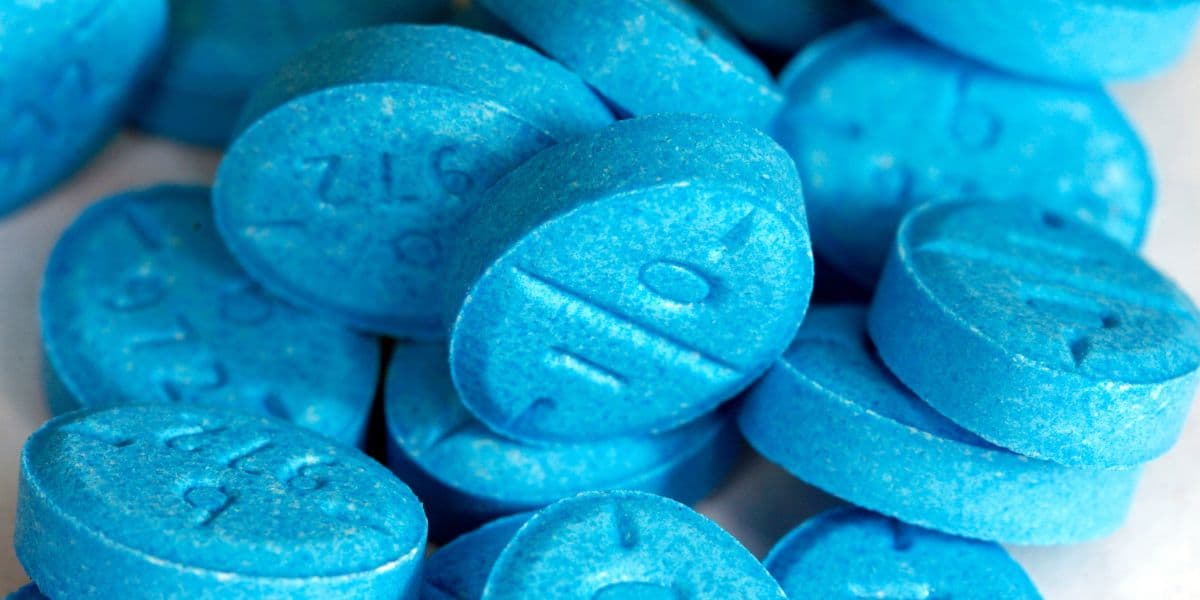The Dangers and Side Effects of Snorting Adderall


Over the last ten years, snorting Adderall has gained popularity as a method of use. Snorting substances accelerate their effects, a factor identified in research as a primary contributor to addiction. This method of using Adderall poses significant risks, heightening the likelihood of health risks, dependency, and overdose.
What Is Adderall?
Doctors prescribe Adderall as a stimulant medication to manage attention deficit hyperactivity disorder (ADHD) and attention deficit disorder (ADD) for patients of all ages.
It has gained popularity among young adults without an ADHD diagnosis, particularly among college students. Often dubbed a “study drug” or “smart drug,” it enhances energy, focus, and awareness.
Some people use it recreationally as it enhances pleasurable sensations and exhibits effects similar to other stimulants. A significant risk of Adderall abuse and physical dependency exists among users.
Because Adderall contains amphetamine and dextroamphetamine, it poses increased risks when used. Pharmacists and doctors often refer to it by its generic name because of its unique chemical makeup.
Adderall is available in two forms: an immediate-release tablet and Adderall RX, an extended-release capsule. Doctors classify it as a maintenance drug used for managing long-term or chronic conditions.

How Long Does Adderall Stay in Your System?
Several factors determine how long Adderall stays in your system. These factors include your dosage, metabolism, and the type of Adderall you use. Typically, medications taken consistently over time will persist longer in the body.
The effects of Adderall last around 10 hours. For instance, if someone consumes 20 mg of Adderall, 10 mg will remain in their system after 10 hours. Around twenty years after administration, an organism still retains roughly 5 milligrams of Adderall.
Typically, Adderall is cleared from the system of a non-habitual user within three days. Still, blood or hair sample-based drug tests can detect it for a longer period.
The Food and Drug Administration (FDA) states that amphetamines can appear in urine tests within 4 to 6 hours after taking them. They may still be detectable for 2 to 3 days.
Snorting Adderall causes the body to metabolize it a bit faster, heightening the risk of severe side effects. Prescription drugs are designed for specific medical needs. Consulting the medication guide and adhering to the instructions is crucial. Taking medications not prescribed to you elevates the risk of health emergencies and potential substance abuse.
Adderall Side Effects
Adderall causes numerous side effects, including both immediate and prolonged impacts, whether it is ingested or inhaled.
Side effects of Adderall may include:
- Faster heartbeat
- Weight loss
- Feeling anxious
- Dry mouth
- Diarrhea
- Sweating
- Feeling sick
- Trouble talking clearly
- Swelling of the eyes, tongue, or throat
- Headache
- Trouble sleeping
- Wounds on fingers or toes with no clear cause
- Getting easily upset
- Withdrawal symptoms
Misusing Adderall increases the risks for people with a history of bipolar disorder. Monoamine oxidase inhibitors (MAOIs), frequently found in antidepressants that regulate brain chemistry, interact with Adderall. Hence, people on MAOI drugs should ensure a minimum gap of 14 days from their final dose before starting Adderall to prevent any drug conflicts. People who have previously experienced allergic reactions to stimulants should refrain from using them.
Side Effects of Snorting Adderall
Snorting Adderall gives a fast high compared to swallowing it, causing a sudden rush and feeling of joy. The drug enters your system through the nose and bloodstream, working quickly. It ranks as the second most frequent method for consuming Adderall, involving the crushing and inhaling of the substance.
The side effects of snorting Adderall include:
- Elevated blood pressure
- Nosebleeds
- Fluctuations in mood
- Rapid heartbeat
- Nerve problems, such as cold hands and feet
- Visual disturbances
- Confusion
- Hallucinations
- Heart attack
- Overdose
- Sudden death
Dangers of Snorting Adderall
Snorting Adderall makes the body process the whole dose at once, even though it’s meant to work slowly over time. This rapid absorption can overwhelm the brain and central nervous system. Crushing the drug makes it difficult to know how much you’re taking, which can lead to an Adderall overdose. Taking Adderall all at once, especially with other substances, can lead to heart issues and other health problems.

Adderall Overdose
No exact cure for a stimulant overdose exists right now. Additionally, since Adderall is commonly combined with other substances, it is crucial to seek medical assistance immediately if an overdose is suspected.
Signs of an Adderall overdose may include:
- Confusion
- Anxiety
- Aggression
- Irregular heartbeat
- Seizures
- Depression
- Suicidal thoughts
- Loss of consciousness
- Coma
- Death
Adderall Abuse and Addiction Treatment
If you or someone you love is battling an addiction to Adderall, assistance is available. White Oak Recovery Center has compassionate and experienced staff trained to assist you in transitioning into a healthy recovery lifestyle. This lifestyle goes beyond just being sober.
Contact us now to learn how our evidence-based treatment plans can be personalized for you or your loved one.

Am I covered for addiction treatment?
Your insurance may cover treatment. Call now for an entirely free and confidential assessment. Recovery starts with a phone call.

- Hart, Cart L., et al., “Acute Physiological and Behavioral Effects of Intranasal Methamphetamine in Humans.” Neuropsychopharmacology, Jul.2008.
- Swanson, James M., “Long-Acting Stimulants: Development and Dosing.” Journal of the Canadian Academy of Child and Adolescent Psychiatry, Aug. 2005.
- Lakhan, Shaheen E., and Kirchgessner, Annette, “Prescription Stimulants in Individuals With and Without Attention Deficit Hyperactivity Disorder: Misuse, Cognitive Impact, and Adverse Effects.” Brain and Behavior, Jul. 2012.
- “Dextroamphetamine and Amphetamine.” MedlinePlus: National Library of Medicine, Apr. 2019.
- “Misuse of Prescription Drugs Research Report.” National Institute on Drug Abuse
Medical Disclaimer:







